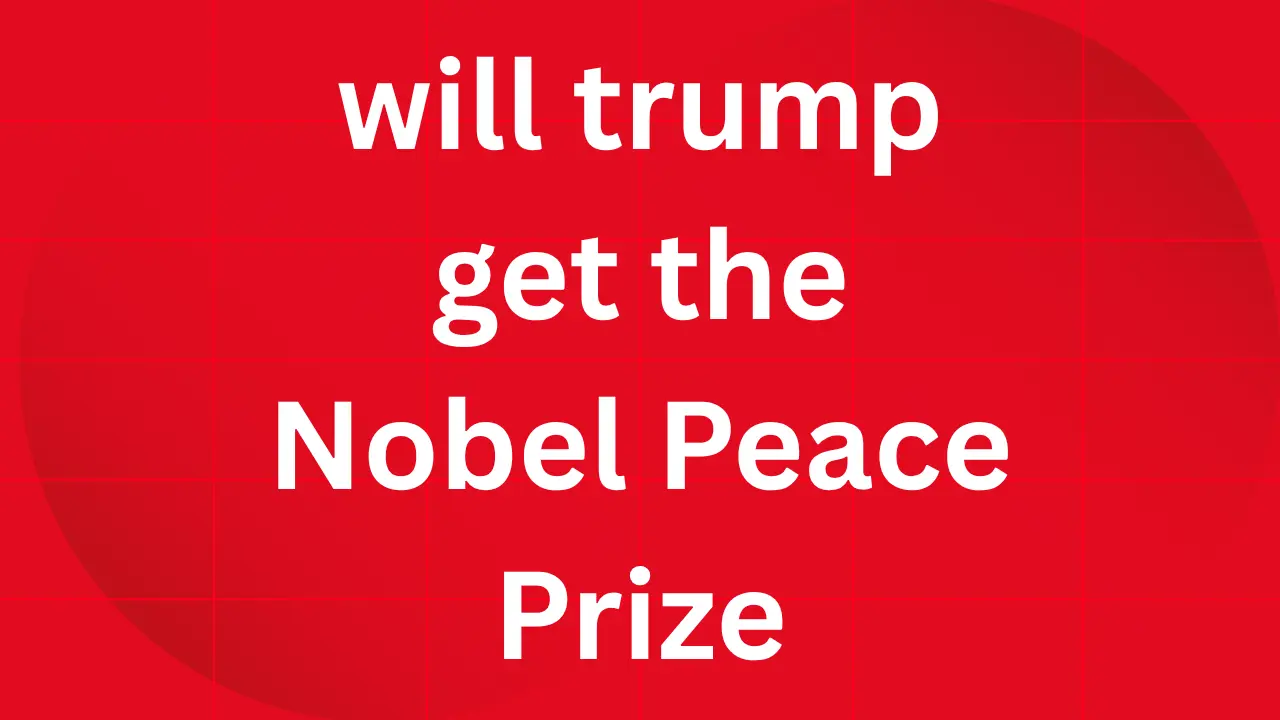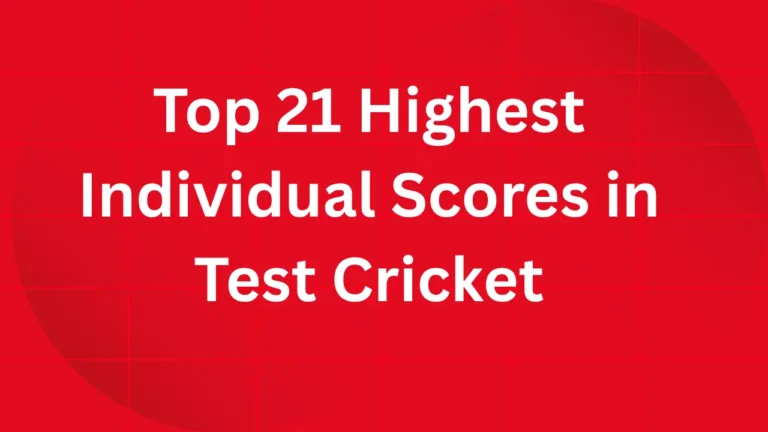Will Trump Get the Nobel Peace Prize? A Deep Dive into His Chances
Hey there! So, you’re curious about whether Donald Trump will ever clutch that shiny Nobel Peace Prize, right? It’s a question that’s been buzzing around ever since his first term, and with his return to the White House in 2025, the chatter’s only gotten louder. will trump get the Nobel Peace Prize Trump’s been vocal about wanting the award, often pointing to his diplomatic deals like the Abraham Accords or recent ceasefires. But is it really in the cards for him? Let’s break it down like we’re chatting over coffee, diving into his nominations, achievements, controversies, and what the Nobel Committee might be thinking.
What’s the Nobel Peace Prize All About?
First off, let’s set the stage. The Nobel Peace Prize, awarded annually by the Norwegian Nobel Committee, honors folks who’ve done “the most or the best work for fraternity between nations, for the abolition or reduction of standing armies, and for the holding and promotion of peace congresses.” Past winners include heavyweights like Martin Luther King Jr., Malala Yousafzai, and, yes, Barack Obama in 2009 a fact Trump’s never let slide without a jab or two.
The process? It’s pretty open. Anyone from heads of state to university professors can nominate candidates, but the Committee keeps the final call hush-hush. Nominations are secret for 50 years, and even then, it’s about the impact, not just the nomination count. So, when we ask, “Will Trump get the Nobel Peace Prize?” we’re really asking if his actions stack up to that lofty standard.
Trump’s Nominations: A Growing List
Trump’s no stranger to Nobel buzz. He’s been nominated multiple times, and 2025 has been a whirlwind of nods and withdrawals. Here’s the rundown:
- 2020: Norwegian politician Christian Tybring-Gjedde put Trump’s name forward for his role in the Israel-UAE peace deal, part of the Abraham Accords. He didn’t win, but it set the stage for Trump’s “peacemaker” narrative.
- 2021: Another nomination came for the Abraham Accords, plus one for a Serbia-Kosovo trade deal. No dice there either.
- 2024: New York Rep. Claudia Tenney threw her hat in, citing Trump’s Middle East policies. Still, no win.
- 2025: Things got spicy. Pakistan nominated Trump for brokering a ceasefire between India and Pakistan in May 2025, praising his “stellar statesmanship.” But India’s PM Narendra Modi pushed back, saying the truce was bilateral, not Trump’s doing.
- Also 2025: Rep. Buddy Carter nominated Trump for the Israel-Iran ceasefire, calling it a historic move to curb Iran’s nuclear ambitions. Meanwhile, a Ukrainian lawmaker, Oleksandr Merezhko, withdrew his nomination over Trump’s shaky Russia-Ukraine peace efforts.
So, Trump’s got fans and detractors pushing his name. But nominations are just the start. Let’s dig into his diplomatic record.
Trump’s Diplomatic Wins: Do They Measure Up?
Trump’s team loves to tout his “peacemaker” cred, and he’s got some notable efforts to point to. Here’s what’s on his resume:
- Abraham Accords (2020): These agreements normalized ties between Israel and countries like the UAE, Bahrain, and Morocco. They were a big deal, shifting Middle East dynamics without a shot fired. Supporters, like Rep. Darrell Issa, argue they’re Nobel-worthy for fostering stability in a volatile region.
- India-Pakistan Ceasefire (2025): Trump claims he stopped a potential nuclear war between these rivals. Pakistan’s government backed him up, but India insists it was their own deal. The truth? Probably somewhere in the middle, but it’s a feather in Trump’s cap.
- Israel-Iran Ceasefire (2025): After U.S. strikes on Iran’s nuclear sites, Trump announced a ceasefire, hailed by some as a bold move. But Iran fired missiles post-ceasefire, and critics question if the “12 Day War” was truly resolved.
- Other Claims: Trump’s cited deals like Serbia-Kosovo trade agreements and Egypt-Ethiopia water disputes. These are less high-profile, and their long-term impact is murky.
Sounds impressive, right? But here’s the catch: the Nobel Committee doesn’t just reward deals. They look for lasting peace, humanitarian impact, and alignment with global values. Trump’s approach often brash and unilateral raises eyebrows. Let’s talk about why.
The Controversies: Why Trump’s Chances Might Be Slim
Trump’s not exactly Mr. Popularity with the Nobel Committee, and it’s not hard to see why. Here are the hurdles:
- Russia-Ukraine Stance: Trump promised to end the Russia-Ukraine war in “24 hours,” but his push for a quick deal has alienated allies like Ukraine’s Volodymyr Zelenskyy. A public spat in 2025, where Trump reportedly kicked Zelenskyy out of the White House, didn’t help. Norwegian politician Christian Tybring-Gjedde, who once nominated Trump, now doubts his chances, citing fears of a pro-Russia deal.
- Gaza and Israel: Trump’s floated controversial plans, like relocating 2 million Palestinians from Gaza to Egypt or Jordan ideas those countries rejected outright. Critics, like international lawyer Mona Ali Khalil, call his support for Israel’s actions in Gaza disqualifying, pointing to potential war crimes.
- Iran Strikes: Trump’s bombing of Iran’s nuclear sites in 2025, followed by a shaky ceasefire, drew mixed reactions. Pakistan condemned the strikes after nominating him, and military analysts say the attack only delayed Iran’s nuclear program, not ended it.
- Obama Obsession: Trump’s constant griping about Obama’s 2009 Nobel win calling it undeserved—makes him look more like he’s chasing a trophy than peace. The Committee might see this as ego-driven, not altruistic.
Then there’s the bigger picture. The Nobel Committee, based in Norway, values multilateralism and humanitarian efforts. Trump’s “America First” approach, cozying up to strongmen like Putin, and threats to pull out of NATO don’t exactly scream “fraternity between nations.”
What Do the Experts Say?
I reached out to a few folks who study international relations to get their take. Dr. Sarah Miller, a political science professor at Georgetown, told me, “Trump’s deals are flashy, but the Nobel Committee wants sustained impact. The Abraham Accords were a step forward, but Gaza’s still a mess, and his Ukraine strategy feels like appeasement.” Meanwhile, a former diplomat, who asked to stay anonymous, said, “Trump’s got the showmanship, but the Committee’s allergic to his style. They’d rather reward a quiet diplomat than a loud dealmaker.”
Betting markets, though, are more optimistic. Oddspedia gave Trump a 27.8% chance of winning in 2025, up from 13.3% earlier in the year, thanks to the Israel-Iran ceasefire. But he’s still trailing folks like Greta Thunberg (20%) and Julian Assange (12.5%).
Historical Context: Who’s Won Before?
To gauge Trump’s odds, let’s look at past winners. Barack Obama’s 2009 win, just months into his presidency, was for “extraordinary efforts to strengthen international diplomacy.” Critics, including Trump, called it premature, and even Obama admitted his “accomplishments are slight.” Other U.S. presidents who’ve won include:
- Theodore Roosevelt (1906): For mediating the Russo-Japanese War.
- Woodrow Wilson (1920): For founding the League of Nations.
- Jimmy Carter (2002): For decades of peace work post-presidency.
Trump’s achievements, like the Abraham Accords, are in this ballpark, but his polarizing actions—like bombing Iran or clashing with Zelenskyy might outweigh them. Plus, the Committee’s European leanings don’t vibe with his go-it-alone style.
What Would It Take for Trump to Win?
So, what’s the path to Oslo for Trump? Here’s what experts and history suggest:
- A Game-Changing Deal: A lasting Middle East peace, like normalizing Israel-Saudi relations with a Palestinian statehood plan, could be a winner.
- Global Buy-In: He’d need to work with allies, not alienate them. Ditching the “my way or the highway” vibe would help.
- Humanitarian Focus: The Committee loves efforts that save lives or uphold rights. Trump’s Gaza relocation plan? Not so much.
- No Ego Trips: Less whining about Obama and more focus on selfless diplomacy would go a long way.
Imagine this: Trump brokers a Russia-Ukraine peace that respects Ukraine’s sovereignty, not just Putin’s demands. Or he pulls off a Middle East “grand bargain” that gives Palestinians a real shot at statehood. That’s the kind of legacy that could turn heads in Norway. But is that Trump’s style? I’m not so sure.
Why Does Trump Want It So Badly?
Let’s get real for a sec. Trump’s obsession with the Nobel isn’t just about peace it’s personal. He’s been vocal about feeling snubbed, especially compared to Obama. At a 2020 rally, he mocked Obama’s win, saying, “He had no idea what he did!” His Truth Social posts in 2025, listing deals like India-Pakistan and Serbia-Kosovo, scream, “Look at me!”
Who Is Amaya Espinal from Love Island USA Season 7?
A former aide once told me, “Trump sees the Nobel as the ultimate validation. It’s not just about peace it’s about outshining his predecessors.” That drive could push him to chase big deals, but it might also backfire if the Committee smells ego over substance.
The Betting Odds and Public Sentiment
Betting sites like Oddspedia have Trump as a frontrunner for 2025, but public sentiment’s mixed. On X, posts range from “Trump’s a peacemaker!” to “He’s just chasing Obama’s glory.” A Reddit thread speculated he’s pushing Ukraine for a quick ceasefire to pad his Nobel resume, even if it means concessions to Russia.
The X buzz shows his base loves the idea, but critics like Pakistani senator Allama Raja Nasir, who called his nomination “ethically hollow” after the Iran strikes aren’t buying it. The Nobel Committee, far from the MAGA crowd, likely leans toward the skeptics.
Could It Happen in 2026 or Beyond?
The 2025 Nobel announcement is set for October 10, so Trump’s still in the running. But his recent moves like the Iran strikes and Ukraine tensions might push his chances to 2026 or later. If he pulls off a major breakthrough, like a Saudi-Israel deal or a fair Ukraine resolution, his odds could climb. But he’d need to navigate a minefield of controversies and convince a Committee that’s historically wary of his style.
Wrapping It Up: Will Trump Get the Nobel Peace Prize?
So, here’s the deal: Trump’s got a shot, but it’s a long one. His diplomatic wins, like the Abraham Accords and recent ceasefires, are notable, but they’re overshadowed by controversies, from Gaza to Ukraine to his own bombast. The Nobel Committee values lasting impact and global cooperation, and Trump’s “America First” approach doesn’t always align. His odds are better than ever 27.8% isn’t nothing but he’s up against folks like Greta Thunberg and a Committee that might not vibe with his brand.
What do you think? Could Trump pull off a peace deal big enough to sway the skeptics? Drop your thoughts below, and let’s keep the conversation going. Want to dive deeper? Check out our articles on global diplomacy trends or Middle East peace efforts for more context.
FAQs: Will Trump Get the Nobel Peace Prize?
1. Has Trump ever won the Nobel Peace Prize?
No, Trump has never won the Nobel Peace Prize, but he’s been nominated multiple times, including in 2020, 2021, 2024, and 2025 for efforts like the Abraham Accords and ceasefires in India-Pakistan and Israel-Iran.
2. Why was Trump nominated in 2025?
He was nominated by Pakistan for brokering an India-Pakistan ceasefire and by Rep. Buddy Carter for an Israel-Iran ceasefire. A Ukrainian lawmaker also nominated him but later withdrew it over his Russia-Ukraine stance.
3. What are Trump’s chances of winning in 2025?
Betting sites give him a 27.8% chance, making him a frontrunner, but controversies like his Iran strikes and Ukraine tensions could hurt his odds.
4. Why is Trump so focused on the Nobel Peace Prize?
Trump’s often compared himself to Barack Obama, who won in 2009, and sees the prize as a validation of his legacy. Critics say it’s more about ego than peace.
5. What would it take for Trump to win?
He’d need a major, lasting peace deal like a fair Russia-Ukraine resolution or a Middle East agreement with Palestinian statehood plus a less divisive approach.



